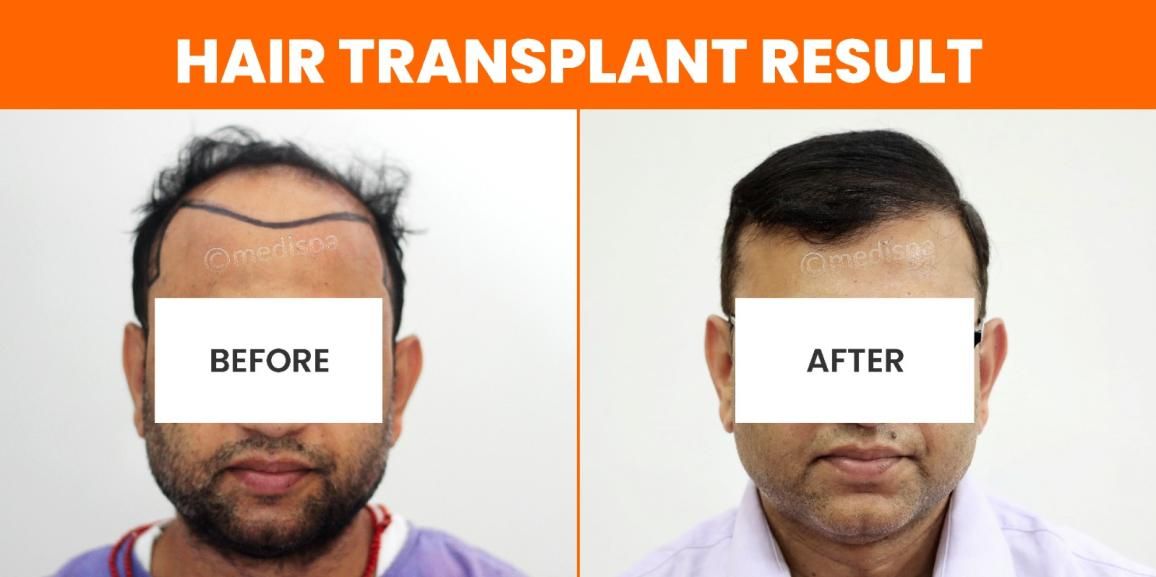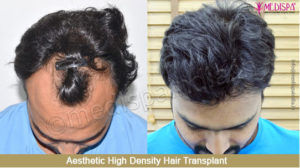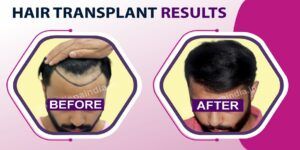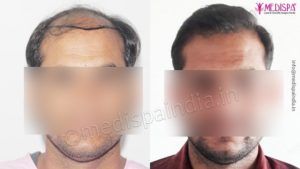
Have you reflected on the various factors that may lead to differing outcomes of hair transplants among individuals? Ultimately, the success of the procedure is largely influenced by the expertise of the surgeon you select. In a similar vein, the effectiveness of hair transplants is contingent upon the proficiency of the performing surgeon.
With the increasing demand for hair restoration procedures and the growing incidence of hair loss, hair transplant in Mumbai has become a commonly accepted practice. However, the cost of these procedures tends to be higher in Mumbai due to the elevated cost of living compared to other major cities. This increased expense often compels individuals experiencing hair loss to seek more economical alternatives in different locations, even though they need not compromise on the quality of care received.
The limited availability of esteemed hair transplant surgeons in certain cities has led to Delhi and Jaipur becoming popular destinations for hair transplant procedures. These surgeons have gained recognition as some of the finest in the world, as evidenced by the high volume of inquiries they receive from individuals globally. Dr. Suneet Soni, the director of Medispa clinics, emphasizes the importance of meticulous attention to each phase of the hair transplant process to mitigate potential complications and risks associated with the procedure. His expertise and skilled approach have enabled thousands to achieve favorable outcomes. To embark on your own hair transplant journey, consider visiting one of our Medispa clinics, where numerous patients have reported positive experiences with their hair transplants.
Side effects associated with the hair restoration surgery
There are several minor adverse effects associated with hair transplant surgery, similar to other surgical procedures. However, due to the minimally invasive nature of the hair transplant technique, there are no severe complications. Post-surgery, patients are not required to remain bedridden; in fact, many can resume their normal activities the very next day. While there may be some temporary and minor side effects following the procedure, these typically resolve within a few days without significant intervention. It is important to explore strategies to mitigate these potential negative effects after undergoing a hair transplant.
What are the side effects of hair transplant surgery?
Every surgical procedure is accompanied by certain aftereffects, and hair transplant surgery is no exception. Although hair transplant is considered a minor surgical intervention, it may still result in some mild side effects post-procedure.
- Mild Swelling: Following a hair transplant, it is common to experience some swelling, which may extend to the forehead or eyelids. This swelling typically resolves on its own within a week.
- Mild Pain: Experiencing some pain after the hair transplant is normal. This discomfort usually lasts between three to five days following the procedure.
- Numbness: It is not unusual to feel numbness in the treated area. This sensation may persist for a few days to several months after the hair transplant.
- Itching: The area that has been treated may experience itching after the procedure. This itching generally subsides within a week.
- Scarring: All surgical procedures result in some degree of scarring; however, hair transplants can be performed in a manner that minimizes the visibility of scars.
How to avoid the side effects after hair transplant?
There are methods available to either prevent or manage the side effects that may arise following a hair transplant.
- How can swelling be minimized after a hair transplant?
The doctor will recommend wearing a headband for the first two days post-procedure. It is essential to keep your head elevated while sleeping. Additionally, abstaining from smoking and alcohol consumption is advised during the recovery period. Adequate rest is also crucial in the initial days following the surgery.
- How can pain be alleviated after a hair transplant?
Experiencing pain after a hair transplant is common. To mitigate discomfort, over-the-counter pain relief medications may be utilized; however, it is important to consult with the hair transplant specialist before taking any medication.
- Does numbness resolve after a hair transplant?
Numbness experienced after a hair transplant typically diminishes on its own, with a timeline for normalization ranging from several days to a few months.
- How can itching be managed after a hair transplant?
To alleviate itching following a hair transplant, it is advisable to clean the affected area gently and regularly. The application of shampoo should adhere to the physician’s guidelines, and lotions should be used following the shampoo application.
- Is it feasible to prevent infection after a hair transplant?
Infections following a hair transplant are uncommon. It is essential that the procedure is conducted in a sterile environment to minimize the risk of infection. Furthermore, adhering to proper post-operative care is crucial in preventing infections.
- How can one minimize scarring after a hair transplant?
It is possible to undergo a hair transplant with minimal scarring. Selecting a highly skilled surgeon is vital to achieving optimal aesthetic results. With the latest techniques available, one can attain the best possible outcomes.
Schedule your consultation today at Medispa hair transplant clinic in Delhi or Jaipur.
Hair care and washing guidelines:
- The head will be wrapped on the day of the procedure, and washing is not required.
- A professional wash will be provided at the clinic on the second day post-transplant.
- For the initial 4-5 days after surgery, avoid direct water pressure on the grafted areas.
- You may need to use a cup to gently rinse the graft sites while showering.
- For the first two to three days, you may lightly touch the grafts while bathing.
- Avoid using your nails to touch the grafts.
- Refrain from using hair styling products and heat tools until the scalp has fully healed.
- Hair combing should be avoided for at least 10 days following the hair transplant procedure.
CRUSTING:
- Typically, crusts resolve within a period of 7 to 10 days; however, this duration may occasionally extend.
- Your hair transplant surgeon advises the use of lotions and creams to effectively remove these flakes and crusts.
- Starting from the tenth day post-hair transplant, gentle rubbing is recommended to facilitate the removal of crusts, thereby promoting the growth of the transplanted hair follicles.






